Sharing Your War Trauma: A Cautionary Tale
Nathan Wagar
Have you ever had a sticky darkness slowly eat at you until the world turns gray? You’ve seen and done too much, and suddenly you meet someone, and love them, and you see technicolor, like in The Wizard of Oz when everything shifts.

They see you; they want to know who you are, so you show them. The problem is, you’re a wolf, and they don’t really know what they are asking for. Then you get to watch their color turn gray, you get to break them with your darkness, and then you’re alone again.
It’s a cycle that many combat veterans are familiar with. If you want to avoid it, you need to be careful.
If you are a man that has been on the other side of the wall where the wild things are, you have probably come home from a war to people that are more precious to you than life itself. They have questions, and you are sparing with the answers. They break you down, and it is easy to give in because you crave to be seen and understood. Nobody wants to be alone in a room full of people.

It Feels Like This. All the Time.
I am approaching this from the perspective of someone that has seen violence his entire life. I was clinically diagnosed three times with PTSD from child abuse, then gang violence, and finally from the war in Iraq. Psychologists now refer to what I have as “complex, or CPTSD,” where the issue stems from a lifelong exposure to damaging events. My life experiences haven’t merely affected my personality from the outside in; they have formed it and molded it with cracked hands.
I have had a lot of time and many opportunities to see how I have affected my loved ones, and seen the pros and cons of clinical as well as “alternative” approaches. My opinion on this has changed and nuanced over time; I offer no solid answers, only some things that have worked for me as well as what I have seen fail repeatedly, from the perspective of someone that will be in this fight until I am dead.
A Man Among Men
My dad was a Vietnam veteran. One of my earliest memories is of me peering around the kitchen door and watching him talk to dead platoonmates while he prepared my dinner. He would speak to them as if they were right there in front of him, floating somewhere above the counter. I asked him who he was talking to, and he startled out of his conversation and yelled that he was talking to no one, and to go wash my hands and get ready to eat. It hurt my feelings, but not as much as him telling me the truth would have. I didn’t get that truth until much later, when I already had a deployment under my belt, and my then-absentee father came back into my life with a beautiful letter scrawled with tears, judging by the small droplet stains on the inked paper.
He took himself away from me because he had seen and done things that he could not bear. And he would not have me bear them. And I understood. He never had to explain himself to me again. I got to be friends with my father, years later and in our own fractured way, and only because he bore the ugliness himself. He lost his wife, my mother, over his darkness. He would not damage me too. He had cashed in his retirement account and lived in his car, in an orchard and often hungry, and would send small anonymous gifts to the house I was living in. He loved me and always had, and only now do I see what a monumental man he was.
I myself, am far less than he. I failed to learn something that men throughout time have had to soberly swallow: A man will break for those he wishes to remain unbroken. You will break for those you love, and they will never know; not really. That is life. You were born into it, and that is how it must be.
I was born in 1985, and in the 90s the Sensitive Man and pop psychology were present everywhere. Our country recognized that we had done a disservice to our Vietnam veterans, and now we had nuanced tools to recognize the psychological issues at play. Moreover, therapy and expressing your inner pain was always seen as a good; a man that cries is a real man. At the same time that I saw solutions move more and more to therapy and professional help, PTSD was seen as a social problem, and integration was the goal. The difference being, now we veterans would integrate into society with our new tools of sharing our pain.
The problem is, sometimes the only thing worse than feeling like people don’t understand you, is people thinking that they do.
The White Elephant
We are all victims of our own model of the world; think of it as each of us having our unique fishbowl. There are two ways to share our reality: The first is analogy, like pouring some of the water from our fishbowl into the other. They won’t have the same understanding of the experience, but they will at least understand the feelings and consequences of the water that you are swimming in. The second, is to crack their fishbowl with your own and force the totality of who you are into their lives, when they aren’t ready for it. All you end up doing is breaking their world, they still don’t see things from inside your fishbowl, and now they are flopping outside and gasping for air.
You can’t make your beloved see what you saw. My dad called seeing the reality of combat, “Seeing the white elephant.” I never understood what that meant until just writing this now. If you remember the old parable, several blind men felt an elephant and described it poorly based on the different parts they were touching, whether the trunk, tusks, ears or legs.
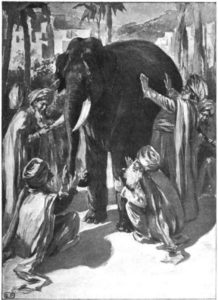
Explaining war, the raw color of it, to a civilian is much the same. A warrior is not blind; he has seen the elephant. He sees it and he sees the color, and there is no going back. All analogies fall short.

Welcome to the Real
Your loved ones see the effects of your experiences. They see how you hide your pain but it leaks out: your eyes are different, you are anxious in calm situations and calm in storms, you are brutal and harsh even in love, you have dramatic nightmares lashing out. They want to know what’s wrong, and for you to explain it to them so that they can share your pain.
You have a decision to make. It needs to be made carefully.
You can share your experiences with your beloved. We often do this with our women, since they are strong and nurturing in so many ways. But to be frank, men have broader shoulders for a reason, and the strength of women lies in their ability to be a garden for what they receive from us; cultivating and growing a beauty out of what we plant that we could never possibly have imagined. That is their strength. Now what is ours? I would argue it is the prudence to know when to expose our loved ones to darkness, when not to, and to what degree.
Aristotle spoke of how the only way to truly understand a concept is to have seen both sides of the boundary. The goldfish I spoke of could never have a concept of being in a fishbowl even though it lives in one, because it has never seen where the fishbowl ends. Humans understand by both similarity, or composition, as well as distinction; to know what something even is, I must also know what it is not.
Your loved ones think they know what you are dealing with. They know mostly from movies, pop culture, their own personal experiences with pain and loss, and perhaps therapy. But if they haven’t been on the other side of the boundary, then they think they have seen your white elephant but they have not. Only you know. You decide whether it is proper to release the elephant into their garden.
I have loved people, and they wanted to know about my experiences in the war. I decided to tell them. I thought it would level the playing field and make things better between us. Sometimes it did, and more often it didn’t. Sometimes they said they didn’t understand, which hurt, and other times they said they did, only to show me later they had no idea. That hurt worse. I’ve explained to people a hundred times about my insomnia and the intricate solutions I have developed in order to deal with it and they still ask “Why aren’t you sleeping?”
That is but one example of many. After enough situations like that, I get angry. I get mad at blind people for not being able to see. It’s a bit like when you have to argue your case for disability at the VA by explaining your pain symptoms. One of the biggest problems with former infantry is that they minimize what they are feeling, and get told by their advocates to “over-sell” their pain levels by “civilian standards.” Otherwise, they go in, tell them that their pain is a two on a scale of one to ten where most civilians would give a six, and then the disability rater assumes they are fine. In our relationships with our loved ones, if we “seem” fine to them they assume that we are when we are in fact falling apart at the seams. When this happened to me, my solution was to show it all.
I’m lonely, and by God I will make them see. I will show them the darkness they think they understand. I hope you see the irony. At this point I feel I have to hurt the people I love to bring them to my level, and show them not just the effects of the war, but the war itself. “Let me show you how fucked up I really am, so you can know how fucked it up it really was.” I need to run them through the gauntlet so they can love me.
How selfish.
A Wounded Dog
This is where it gets really ugly. Men need to be needed. We are pounded since birth with a hard truth: We are disposable, and our purpose lies outside of ourselves. Evolution says we are disposable, Genesis implies the woman is the crown of creation, and current political correctness argues whether we as men even exist or matter. Women and children have always been the centers of culture and society, and we keep them where the gardens and campfires are while we turn to face the unknown that lies beyond the light and into the dark of the woods. They have intrinsic value; we do under God but not where the rubber meats the road. We are to live lives of sacrifice; we do things “out there” for the sake of “back there,” and therein lies our glory.
I tried, with varying degrees of success, to be the one that others in my life could rely on. Men from my platoon would call or text me at all hours when they were sucking on the end of a pistol, or needed to come through and stay for awhile. Eventually they all gave in. My life began to seem like a game of Texas Hold’em, where one by one each of the players disappears until I am playing Solitaire at a table with many empty chairs. At that point, I knew all the reasons, the therapies, the philosophy, the theology, and the hard logic of why I should live, but it didn’t matter and I wanted to die.
At that point, I turned to a woman I love more than anything, and I begged her to give me permission to kill myself. I did this over the course of several weeks. In my mind, I was handling it responsibly, as any older person in the Netherlands might discuss euthanasia when they are ready to die. I had come to view my sacred task of staying alive for others as a curse, and begged her to release me. I am Catholic, I can’t kill myself, and yet somehow if I could have her release me, it would be okay. Firmly aware of the irony of my position, in my own twisted logic I thought I could have her take responsibility for my action, and perhaps lessen my culpability. Of course her answer was no, she would never give me permission and how dare I ask such a thing, as only a good woman could ever say. But I cracked her in the process, and even when I recognized the agony I was causing her and promised never to do it again, the damage was done.
Now there was a certain irony. I no longer had the option of ending it all; I just had to deal with the pain. But on the flipside of that coin, if I needed her voice or touch because of my demons, she would only respond “I can’t help you with that.” If you break a woman enough, she turns cold to you. The technicolor turns back to gray. And now? Now I was stuck with the only option I ever had from the beginning, except I hurt her in the process: Bear it.
This is the weakness of the “share your pain” approach, and I know many veterans that have done exactly this. We show our loved ones who we are, in fact we crack them with who we are, until finally they say “We can’t fix you.” And the thing is, they could, and they were. The touch and laugh and joy and tears and hopes and dreams of our loved ones; they are the only things that ever can heal us. But it works slowly, like a good lotion in dry skin, or a good diet and exercise instead of rough antibiotics.
To use yet another analogy, being a war veteran is like being a stray dog crazed with pain. A small child goes up to pet it, and the dog repeatedly bites the child every time it tries. The child will assume, understandably, that petting the dog is not working, and the dog will be euthanized at the pound or simply stay alone. But the irony is, the small pets and love and affection were working, in fact they are the only things that ever could. The pain of the dog was simply too much, and now the only approach that could ever work is no longer an option. Worse still, the child, the dog’s potential loved one, is the one who now believes it could never work, and the dog is alone.
You are not a dog. You are a man. You have an intellect and a will. If you, oh disposable man, choose to damage your reason for living, you will find yourself at the end of that rope a lot sooner than if you had exercised prudence, and realized that not every evil needs to be shared.
The Logic of Sacrifice
As an Catholic, my religion has always recognized some hard truths that other worldviews try to skip around: Suffering is meaningless in the ultimate sense unless it is given meaning by an objective standard. The Catholic response is Christ, who molds perfection itself into the muck of our existence and raises our muck beyond us in a sacrifice to the Father. If we offer up our sufferings to him, they have meaning in union with his sacrifice. A common saying that we say when we are in pain is to “Offer it up.” Others that do not share my belief understandably ask how Jesus has the right to do such a thing. Who is he to simply “take on” all that shit that happened in the Sunni Triangle and somehow make it mean something?
Well, he is God but also Man. He has that role as representative of humanity. This idea of role, however, is something we can take part in as men, whether you share my religious framework or not. In the same way that my religion says that God takes a “male” role to humanity by sacrificing on behalf of us to himself, I also have a relational role to my beloved. I love her, and my suffering takes on a certain meaning in relation to her. By itself, and without her, my nightmares of blood and dead pregnant women with her fetus shot out of her stomach and blood gouting around my fingers out of a neck wound have no meaning. They have no meaning at all, any more than a bag of shit.
But now bring in the woman I love. Bring in her relation to me as a source of life and color, and my role and duty to protect her as she grows my garden. At this point my suffering is a sacred duty. She gives it meaning. Eve may have committed the original sin by eating the fruit in the garden, but in the Hebrew it is quite clear that Adam was standing right next to her and let her eat. He failed. He didn’t face the serpent, he let Eve bear his darkness, and cracked the entire course of existence. Every man since, including the perfect man Christ himself, has to rectify that mistake.

You can jump right in any time, there, Adam.
Whether you choose to view the evil you have faced as a serpent or a white elephant, do not let it loose in your precious garden, where the roses are. You stand the fuck up and bear it. Existentialists and contemporary thinkers such as Jordan Peterson have attempted to bring suffering into secular perspective by saying that you can, and indeed you must, choose to bear it in order to give it meaning. It’s coming anyway, you must make that choice. It’s a tall order; philosophically I am not sure if it works by itself, but it is certainly part of the larger Catholic puzzle that I believe. And I am saying, the best way to choose to bear suffering is externally: choose to love someone else with all your heart. Because then as a man, you have your value, and your value lies in them, as it does for all men. “For the sake of.”

To use the archetypically perfect gem of a movie, Beauty and the Beast, you have to protect her from your demons, both external and internal. Or you will never be her King.
Now you have come to the specifics. You have to make a choice of what to show them, and what to keep to yourself. I can’t tell you where that line should be. Every loved one is different. Sometimes you can allude to a “fire fight” but leave the “decapitated head that you were playing soccer with” out. Never use your experiences as weapons to gain sympathy and then use them against them. Never strike them, never tear them down or fault them for not understanding or being as “real” as you. That’s exactly why the fuck you went to the front lines, you ingrate: So they would never know. Own it.
I know it’s a minefield knowing who to talk with about these things. Before so many suicides, I had most of my former platoonmates on social media. We all knew in theory that we could talk to each other, but none of us ever really did. It’s almost like it was too raw; too close. There was too much there between us. Some of us did reach out, but it was the exception rather than the rule. It’s almost easier it feels, to talk to the loved ones around us; it’s like the very fact that they are civilians and don’t quite know the full reality gives privacy, like saying your sins in the dark to the priest in the confessional. But civilians can’t handle it, and why should they?
Now you feel, as I did and often still do, as though you are in a pickle. You can’t really talk to those that are closest and know you best, but your loved ones must not bear the full weight of your experiences. What are you to do? I personally have found some, but not many answers in therapy. Depth psychology has given ground to cognitive behavioral therapy, with each side critiquing the approach of the other. Depending on the therapist, you could find that you are being treated for PTSD, moral trauma, appetitive aggression, or complex PTSD, all with their own unique treatment plans. They each have their uses, but ultimately fall short by treating a problem of the soul with an overly specific solution.
From what I have seen, a more general answer lies in transcendence: Art. My tools are writing, religion, the flamenco guitar, Brazilian Jiu Jitsu, my culture and folk customs. The tortured artist and suicidal writer are both stereotypes for a reason: art has always been where man has tried to touch God and scare away the demons. I craft my body for violence and my mind for serious things; I craft them to be for the ugly things on the other side of the wall but to also be beautiful, and to delight the ones I love.
If you pay attention, this is how combat veterans have always impacted society: Through the analogy of art. Most people probably know Vietnam through the movie Platoon, made by a combat veteran named Oliver Stone. Novels such as All Quiet on the Western Front and The Red Badge of Courage have touched the minds of our youth in school. George Bush paints the faces of fallen and living soldiers that were harmed on his watch.
Bear it. Do not bear it for yourself. Put yourself out there and love someone worth loving, and bear it. Bear as much of it as you can and keep your loved ones from the darkness. Then you channel it into something beautiful, and share that with them instead. Take all that evil, and stuff it deep into a jar, and lock it up.1)Do not stuff it into a hurt locker, that movie is gay. Then take it out later and use that as the colors for your next painting. Don’t be a pussy. Bear it.

References
| ↑1 | Do not stuff it into a hurt locker, that movie is gay. |
|---|

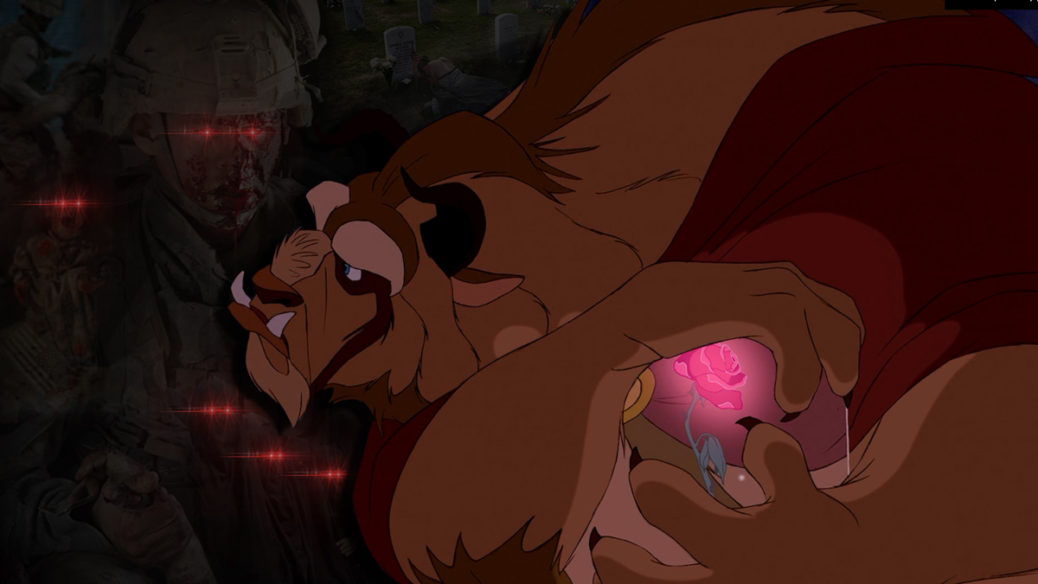
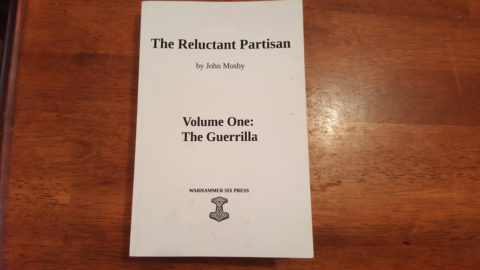
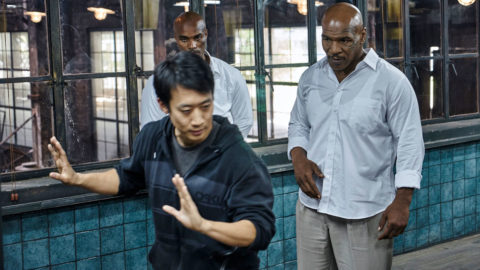
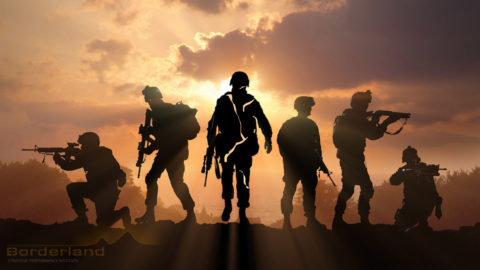
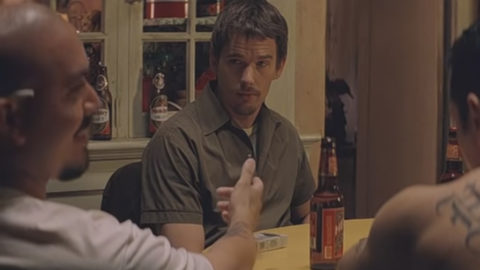


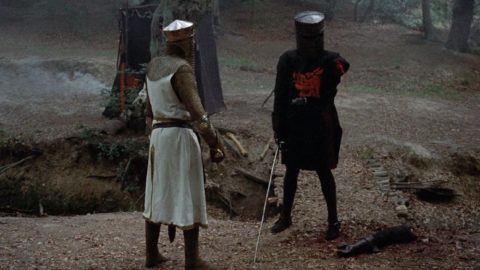

 Rob Brotzman
Rob Brotzman  Nathan Wagar
Nathan Wagar